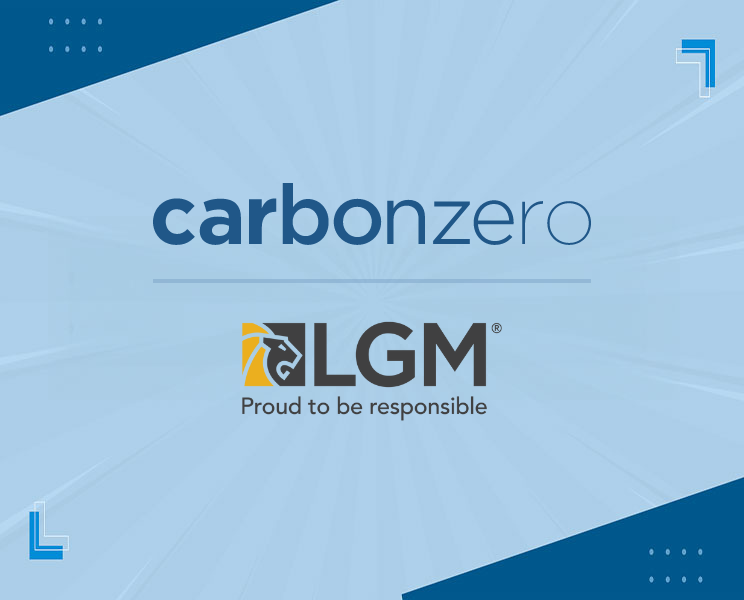As appeared in the FinancialPost.com on Monday, September 12, 2016
Adam Hill, 44, started Vancouver-based LGM Financial Services, a warranty and insurance provider for automotive brands across the country, in 1998. It’s been named one of the 500 fastest-growing companies in Canada by Profitguide.com for eight consecutive years and has doubled the size of its staff to more than 200 in the past five years.
Hill was born and raised in Perth, Australia and moved to Canada in 1993. He earned an associate diploma in business and accounting from Perth Technical College in 1992 and an executive MBA from the Herndon, Virginia-based Jack Welch Management Institute in 2013.
He’s married to Tanis Hill and the couple have three children.
Q&A
Q: Who influenced your leadership style?
A: My father John Hill. He ran a number of businesses and so I was involved in several small ventures as a kid like selling chocolates, free-range eggs and running a car wash. It taught me that if I wanted to own or buy something, I needed to generate that income on my own.
I learned a lot during the five years I spent at CRC Creditor Resources Canada. The big lesson was about generosity, which isn’t just financial, but also comes in the form of trust and empowerment.
Q: What can you tell me about your company’s emphasis on giving back?
A: I believe businesses are only successful when others support it. It’s never a one-way street.
Every employee can take four days paid leave a year to do community work, or whatever is meaningful to them – whether that’s coaching little league, or volunteering at a soup kitchen. And the company tracks it. I expect employees to at least volunteer two days a year.
The company also has initiatives like raising money for the Children’s Wish Foundation and running a distracted driving campaign every year. As a company, we firmly believe in paying it forward.
“The people who give back are the ones that you can count on”
Q: Some chief executives would think the idea of giving employees four days off to give back to their communities was a bit idealistic. How would you respond to that?
A: I’d ask them how they could afford not to do this. The people who give back are the ones that you can count on when the time comes and you need to double down to get something done. They’ll gladly go above and beyond for you because you’ve enabled them to do things that are meaningful to them.
Q: How do you ensure your giving-back philosophy is maintained as the company grows?
A: It’s embedded in our recruiting process. We ask people for examples of how they’ve given back in the past. And I give every new hire a book called Go Giver, by Bob Burg and John David Mann. It explains that if you help other people without self-interest, then everything will take care of itself.
Q: I would imagine this philosophy also seeps into the culture of how people work together.
A: Yes. I think you achieve the greatest outcomes when everyone is part of a connected vision, as opposed to competing for scarce resources where the most aggressive one wins.
Q: What’s one of the most powerful lessons you’ve learned?
A: It’s good to broaden your perspective – even when you think you’re right. And asking questions is key.
My first priority is to ask people how I’m doing. From time-to-time, I pull my senior leadership team aside, one-on-one, and ask questions such as: am I fairly compensating you; are you getting enough of my time; do you feel like you’re empowered; do you feel like I’m stepping in too much; do you feel like we’re doing the right things.
Q: How do you create a rapport to do that?
A: I tell people the questions a few weeks in advance so they’re not put on the spot. This helps create a culture where people know I’m sincere about wanting feedback. My promise is that I won’t be reactive or defensive. I might have some clarifying questions, but I’ll take time to digest what they say.
If I sense someone is not being authentic, I’ll dig in on it. And if they’re reluctant to talk I want to speak about the implications of not sharing. It makes me feel a bit ripped off when that happens because if I don’t know how I can improve a relationship, I’m missing out on an opportunity for self-development. We all need each other.
“Upgrading talent is one of the most important things in terms of stimulating growth”
Q: If you could go back to the start of your career and give yourself advice, what would it be?
A: When you start a business you have peanuts to work with and so you might not hire the best employees, however upgrading talent is one of the most important things in terms of stimulating growth. Having more top-shelf individuals will get you where you want to go a lot faster.
Q: What else has helped your company grow?
A: Continuous learning. I want people to be innovative, take calculated risks, and stick their necks out. I don’t have any misgivings when people work with the best of intentions and things don’t pan out.
What I won’t tolerate is people doing the same things over and over again if the approach clearly doesn’t work. It’s important for people to always have a new awareness of what’s possible for them.
This interview has been condensed and edited.
Craig Dowden (PhD) is president and founder of Craig Dowden & Associates, a firm focused on supporting clients in achieving leadership and organizational excellence by leveraging the science of peak performance. Craig delivers evidence-based executive coaching and leadership development training to his clients. You can connect with him by email or LinkedIn, or follow him on Twitter @craigdowden.


